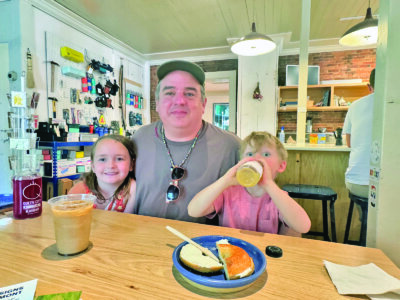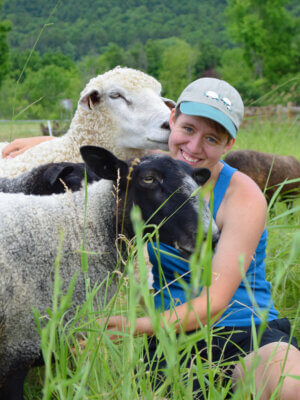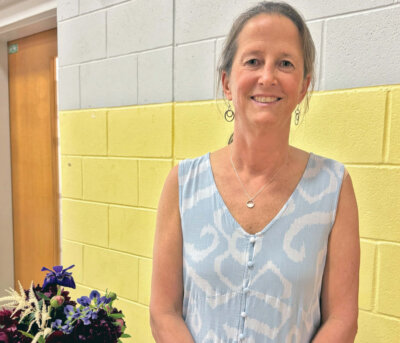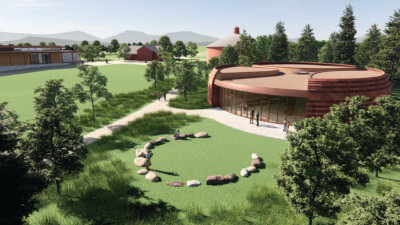State police ride-along yields little adventure but lots of information
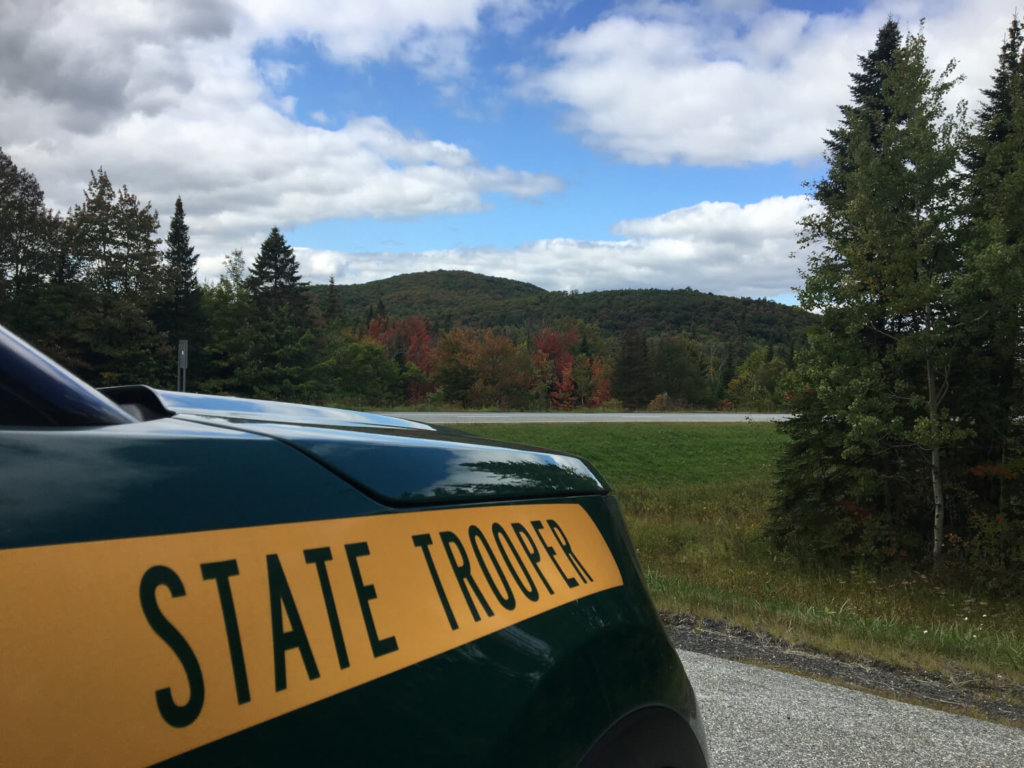
The promise of adventure was there from the start: I had to sign a waiver. Lieutenant Matt Daley, head of the New Haven barracks of the Vermont State Police and fellow Charlotter, kindly offered to take me with him on directed patrol on a drizzly October day when the leaves were just starting to show their full fall potential. My mission was to find out what exactly a VSP patrol around town entails.
The waiver I signed read, “I understand that by way of example, but not intended as an exhaustive list, the activities will consist of travel in patrol cars which may become involved in high speed chases, and that I may be exposed to violent and unruly behavior from individuals.” The idea of it seemed exciting, but Lieutenant Daley wasn’t optimistic that we’d meet any unruly individuals and definitely wasn’t anticipating a car chase of any kind. He was correct. We didn’t even get to pull over a speeder.
“It’s raining,” Daley said, “and people are driving more carefully.” Also, he said, despite the uptick in property crimes lately like home burglaries and a couple stolen cars, this town is blessed with the facts that “there isn’t a lot of crime, and there isn’t a lot of traffic.”
Though we don’t have our own police force, the VSP presence in town is a big reason why those two things are true. Daley said that troopers who work a shift in Charlotte can be assigned—the town is contracted for 32 hours per month—or they can sign up for extra hours and request a Charlotte placement if desired. The Vermont State Police are in charge of patrolling state roads, like Route 7, so those hours spent on that road don’t count toward the contracted 32.
“Our goal is to keep people safe,” Daley said, “and part of that is pulling over speeders, and part of that is making our presence known.” He said the mere fact that a trooper is driving through town or sitting on a roadside or parked as part of a directed patrol in a highly visible part of town helps to accomplish that goal.
As we drove around town, covering dirt back roads and main arteries like Spear Street and Mt. Philo Road, Daley said that he was recently promoted to lieutenant in New Haven, and because of his additional responsibilities he’ll be turning over most of his duties to Trooper Nathaniel Quealy. Daley has run the data and attended Selectboard meetings as one of the VSP liaisons, along with Lieutenant Bob Lucas, for the past five years. He said that though he’s mostly moving on, he’ll keep an eye on Charlotte—he’s the only state police officer who lives in town.
When I informed Daley that up until a few weeks ago I didn’t lock my car at night, or bring the keys inside, or take my wallet out of the car, he frowned at me. Burglars, pay attention: I’ve mended my ways. He said that due to a recent rash of thefts in the area, many local homes and businesses have installed cameras and have been more diligent about locking up.
Aside from battening down the hatches, though, he said that an increased police presence in town can be an effective deterrent. Just driving around and hanging out helps, he said. “We like to, and what the town wants is stopping into stores, grabbing a coffee, and talking to people… because people tell you the strangest stuff, and it might help with an investigation.” He also said it can be useful to “just show people that you’re around,” although lately they’ve done their fair share of sitting in blacked out cars waiting for something to go down.
Pulling cars over for speeding is only a fraction of the responsibilities for state police, and Daley said there’s no minimum number of traffic tickets that troopers must issue and that, sometimes, he’d rather they did other stuff, anyway.
“What I’m looking at is, are these guys doing their job?” he said. “Are their traffic numbers low, but they’ve solved three burglaries in a month? Solving a burglary is like 100 car stops; that’s the greatest thing, because you actually help people that need to be helped.”
Traffic stops also serve another purpose, he said. Sometimes, a traffic stop can result in finding someone who’s a person of interest in another investigation, or they can point you in the right direction if they have some information.
Daley also said that the people skills involved in traffic stops and interacting with Charlotte townspeople can help officers develop the tools they need if they eventually want to be detectives or move on to bigger police departments in other states.
I tried to nab a speeder on the short two-lane section heading north on Route 7 between the stop light and Shelburne, but Daley said the guy I was certain was going too fast was just fine. “The majority of the time, people are following the speed limit, and they’re even going below it a lot of the time,” he said. Pedestrians can perceive vehicle speeds as much higher, and officers who are trained in radar are required to develop the skills to eyeball it. He said that in order to be certified with a radar, troopers need to be able to estimate the speed of a vehicle within two or three miles per hour just by watching it—and they need to be able to do it successfully 10 times in a row.
Daley said that his people skills are constantly developing and that he recently added hugging to his resume. He said an elderly woman stopped by his house after getting her first-ever speeding ticket, and he wasn’t sure how to proceed. He gave her an extra envelope from his cruiser and explained how to pay the ticket—and then went above and beyond his duties. “She started crying, and I gave her a hug,” he said.
Whether it’s shooing cows off of State Park Road, responding to complaints from the school that people are driving too fast in the school zone, keeping tabs on houses that are known to be potential places for criminal activity or just giving a squeeze to a sad lady, the Vermont State Police presence in Charlotte does a lot more than state police departments in other states, Daley said.
“In some states, troopers are mainly on the interstate—they’re not taking calls in rural towns, so we’re an interesting state—we do everything, and we follow calls until the end.”
Related Stories
Popular Stories
If you enjoy The Charlotte News, please consider making a donation. Your gift will help us produce more stories like this. The majority of our budget comes from charitable contributions. Your gift helps sustain The Charlotte News, keeping it a free service for everyone in town. Thank you.
Andrew Zehner, Board Chair




